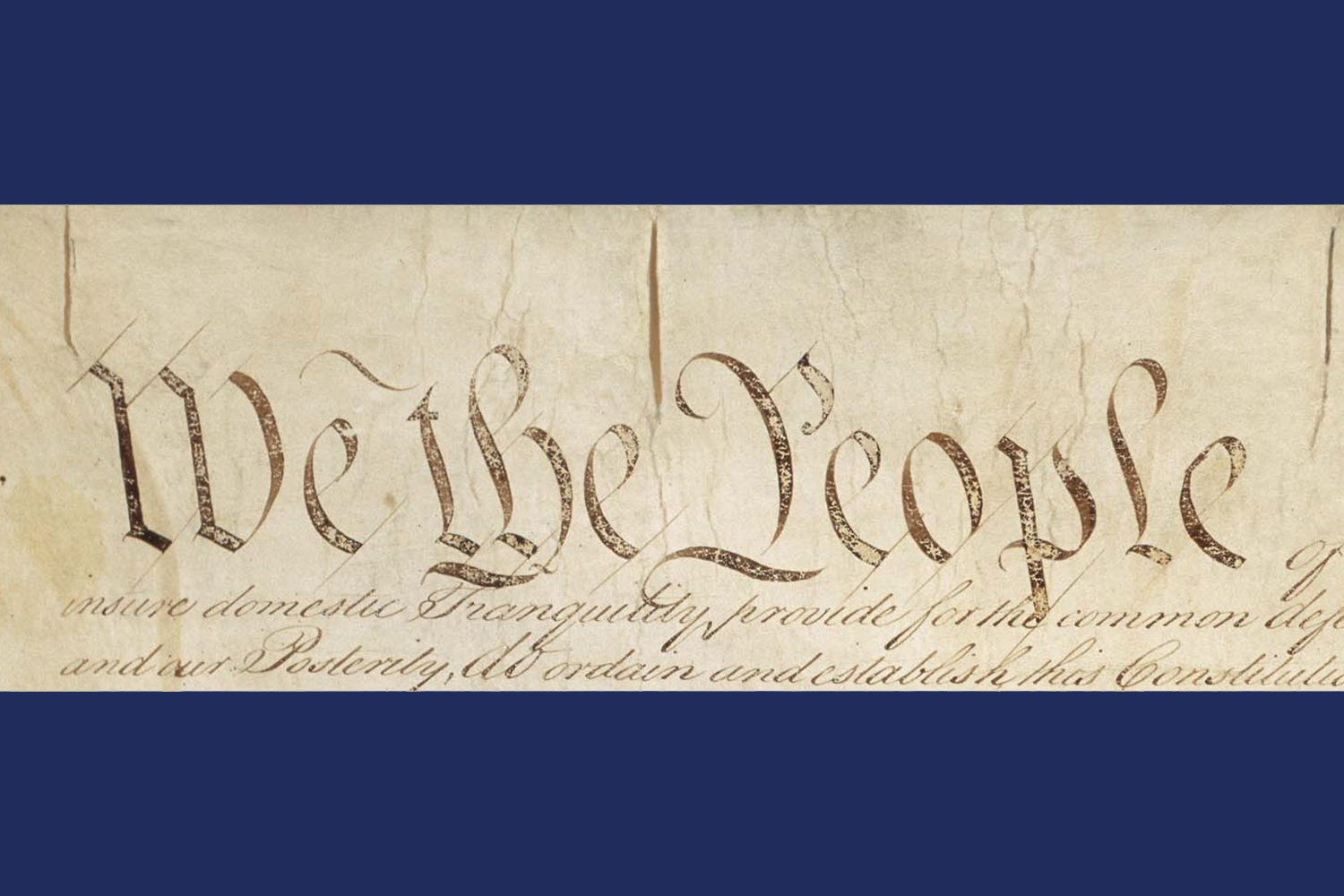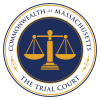- Trial Court Law Libraries

“We the People of the United States, in order to form a more perfect union, establish justice, insure domestic tranquility, provide for the common defense, promote the general welfare, and secure the blessings of liberty to ourselves and our posterity, do ordain and establish this Constitution for the United States of America.”
The Preamble to the U.S. Constitution.
On September 17, 1787, 39 delegates to the Constitutional Convention in Philadelphia signed the United States Constitution in the Pennsylvania State house, a building which later became known as Independence Hall.
In 1952, the U.S. Congress passed a Joint Resolution (HJ Res. 314) “that the 17th day of September of each year is hereby designated as "Citizenship Day" in commemoration of the formation and signing, on September 17, 1787, of the Constitution of the United States. . . [T]hat the civil and educational authorities of States, counties, cities, and towns be, and they are hereby, urged to make plans for the proper observance of this day and for the full instruction of citizens in their responsibilities and opportunities as citizens of the United States and of the States and localities in which they reside.”
Public Law 105-225 in 1998 mentions September 17 designated also as Constitution Day. And today, the commemoration is known as both Constitution Day and Citizenship Day in 36 USC 106.
Resources at the National Archives
Our country’s Founding Documents: the Declaration of Independence, the Constitution, and the Bill of Rights, known collectively as the Charters of Freedom, are on permanent display in the Rotunda of the National Archives. The National Archives' website provides a wealth of information about the history and meaning of the Constitution, as well as biographical information about the Framers.
The National Archives celebrates Constitution Day through public programs, family activities, and online resources. Founders Online allows you to read the Founders’ own words about creating the Constitution, with links to over 184,000 searchable documents, fully annotated, from the authoritative Founding Fathers Papers projects.
For the children
Constitution Day gives us all a chance to reflect on the shared values of democracy, liberty, and justice outlined in the United States Constitution. Resources for teachers at all grade levels have been provided by a number of government agencies to help foster an understanding of the history and importance of the Constitution. These resources include lesson plans, webcasts, guided online activities, and interactive eBooks.
Selected resources:
- Library of Congress, Constitution Day Teacher Resources
- National Archives and Records Administration, Educator Resources: Observing Constitution Day
- National Endowment for the Humanities, Teacher's Guide: Commemorating Constitution Day
Interpreting the Constitution
The Constitution Annotated: Analysis and Interpretation provides an analysis and interpretation of the United States Constitution based on a review of Supreme Court cases and historical practices that have defined the text of the Constitution. The Librarian of Congress is tasked with the preparation and publication of the Constitution Annotated under 2 USC 168. The Congressional Research Service has prepared an Introduction for the Constitution Annotated to help the general reader navigate and understand the Constitution Annotated.
“The Federalist Papers were a series of essays written by Alexander Hamilton, James Madison, and John Jay under the pen name ‘Publius.’ [They] are considered one of the most important sources for interpreting and understanding the original intent of the Constitution.” The Library of Congress has compiled a guide to digital materials about the Federalist Papers, external websites, and a print bibliography, including a link to the original text of the essays themselves.
Legal scholars have been arguing about the meaning, purpose, and interpretation of the Constitution since it has been ratified. The current debate centers on the view that the Constitution should be interpreted based on its 18th century meaning and context (Originalism or Textualism) versus looking at the Constitution as a practical, living document that takes into consideration real life consequences of decisions that apply to circumstances that were not imaginable in the 18th century. In A Matter of Interpretation: Federal Courts and the Law, the late Justice Antonin Scalia makes the case for Originalism. Active liberty: Interpreting our Democratic Constitution espouses Justice Stephen Breyer’s competing view.
At Stanford Law School, Yale Law School Professor Akhil Reed Amar presented a 2024 Constitution Day lecture titled “The Constitution, Originalism, and the Presidency: Questions and Answers” available online. Professor Amar offers a weekly podcast called Amarica’s Constitution with in-depth discussions with top experts about the constitutional issues of our day.
Resources available at the Massachusetts Trial Court Law Libraries
The United States Constitution is the founding document of our country. The 15 Massachusetts Trial Court Law Libraries provide current and historical law-related information through navigating access to law books, databases, and web resources. Contact us online, in person, or by phone with your questions about the Constitution as "We the People" celebrate Constitution Day in 2025 together.
Tomorrow on Massachusetts Law Libraries’ Blog: “We the People: The Origins of Constitution Day and Citizenship Day”.
Authored by Barbara Schneider.
